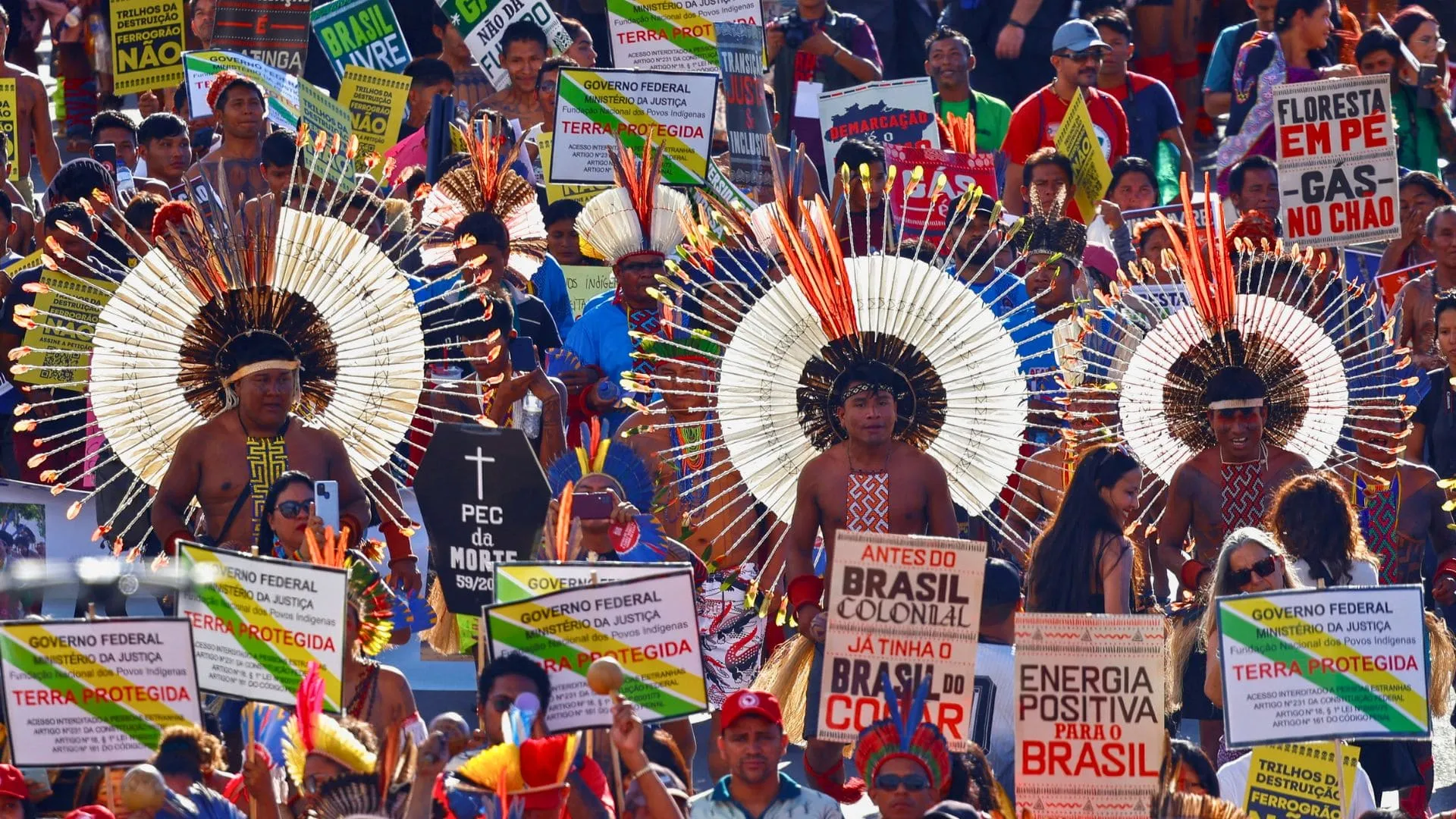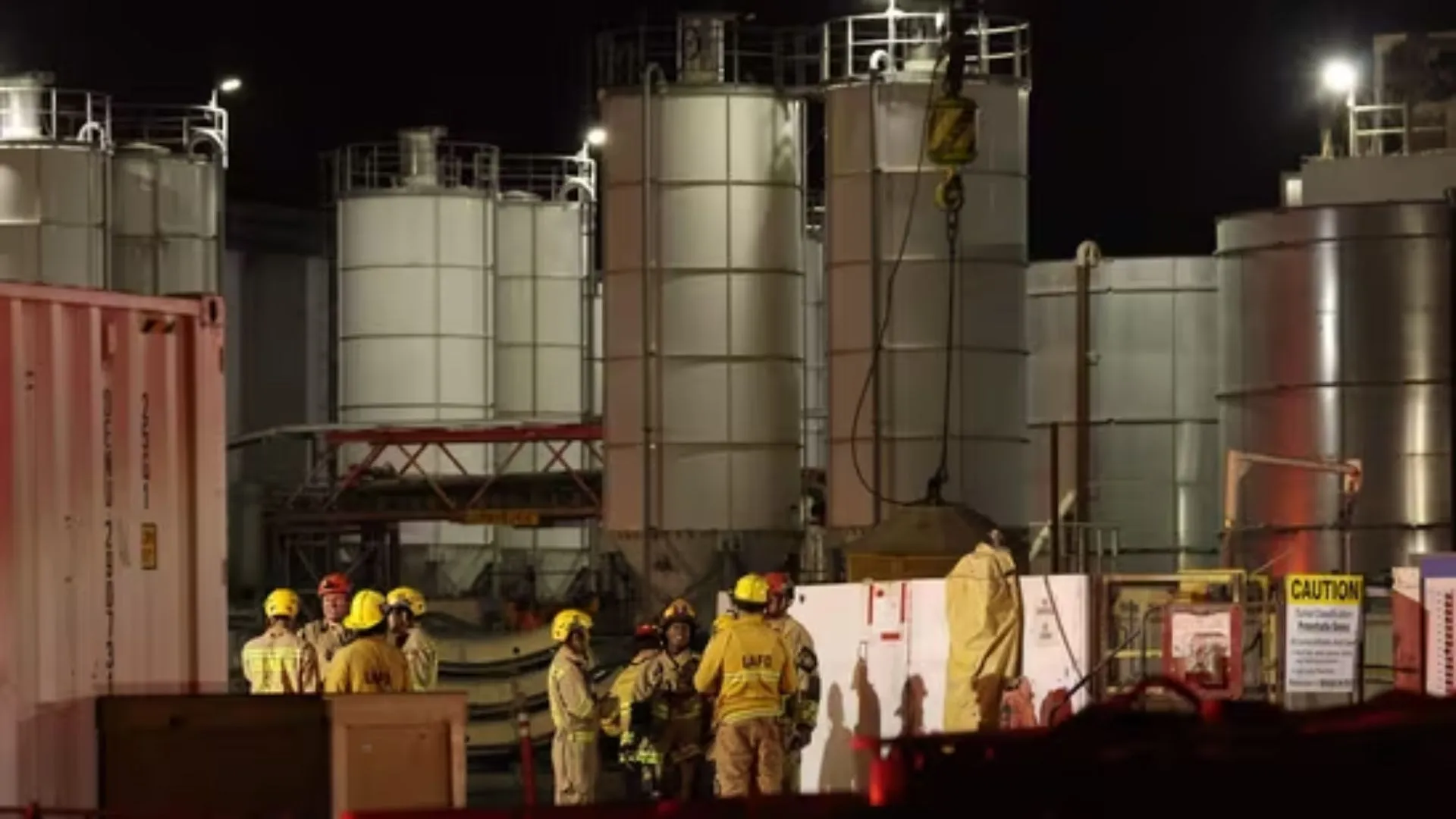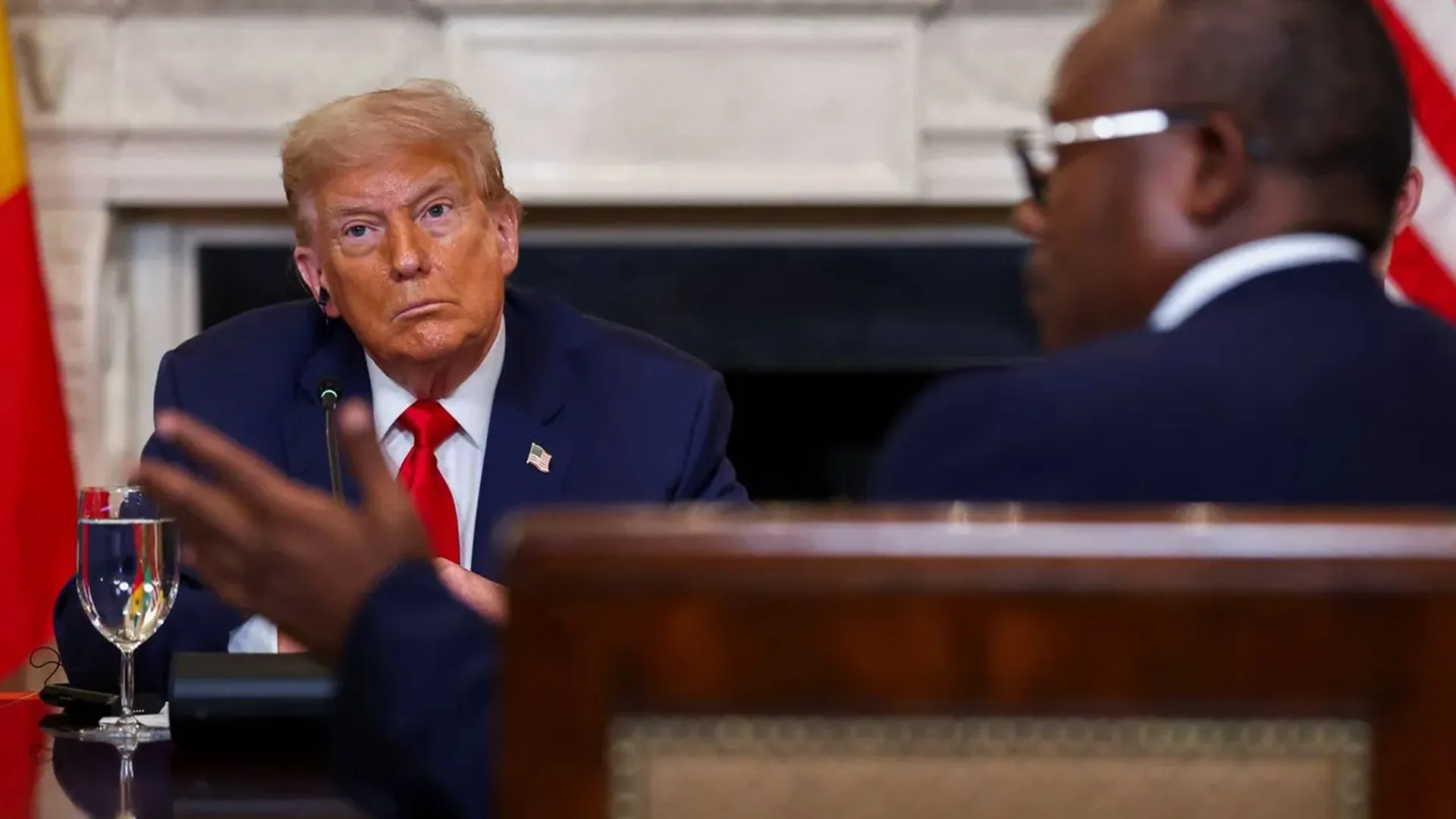Thousands of Indigenous Brazilians have gathered in Brasília this week to protest against the 2023 “Marco Temporal” law, calling on the government to take immediate measures to defend their ancestral lands. At the center of the Brazil Indigenous land rights protests 2025 is a controversial law capping land claims on lands occupied up to 1988—a step Indigenous groups claim violates their constitutional rights, drives rural violence, and undermines Brazil’s efforts to combat climate change by compromising protection for critical forested lands.
‘Marco Temporal’ law: Threat to ancestral lands
The 2023 legislation, supported by Brazil’s influential agribusiness lobby, applies an 1988 deadline to Indigenous land claims. The clause ignores past displacements, especially those that took place under Brazil’s military dictatorship, in effect eliminating many valid claims. When the Supreme Court declared the deadline unconstitutional in September 2023, Congress resurrected the law, fueling tensions between the government and Indigenous groups.
Climate Implications: Indigenous Stewardship as Environmental Safeguard
Indigenous lands cover about 13% of Brazilian territory, mostly in the Amazon forest. They are crucial for climate regulation, with slower deforestation and acting as major carbon sinks. Protesters point out that undermining Indigenous rights to land threatens not only their populations but also global climate balance.
Growing Tensions
The demonstrations have involved clashes with security forces, such as the deployment of tear gas against protesters outside government buildings. Events such as the violent confrontations in Mato Grosso do Sul, where the Guarani Kaiowá community is threatened by constant land conflicts, highlight the need for immediate legal recognition and protection of Indigenous lands.
Government Response and Indigenous Advocacy
Although President Luiz Inácio Lula da Silva’s government made efforts to abide by Indigenous rights, such as the establishment of a Ministry of Indigenous Affairs, numerous communities are complaining that this is not enough. The Articulation of Indigenous Peoples of Brazil (APIB) has backed out of government-sponsored conciliation processes, which they claim do not abide by constitutional guarantees. APIB still insists on the revocation of the “Marco Temporal” law and the complete demarcation of Indigenous lands.
The Brasília protests are a microcosm of a larger struggle for Indigenous rights and protecting the environment. With Brazil hosting the UN Climate Conference (COP30) in 2025, the eyes of the international community focus on how the country is handling these interlinked questions of justice and sustainability.






















